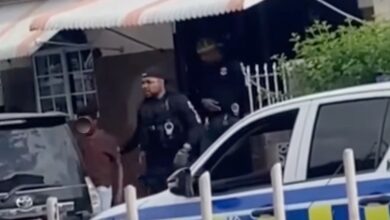Haiti: Barbecue Open to Peace Talks but Warns ‘As long as we are not at the table, the country will never be in peace’ – Video
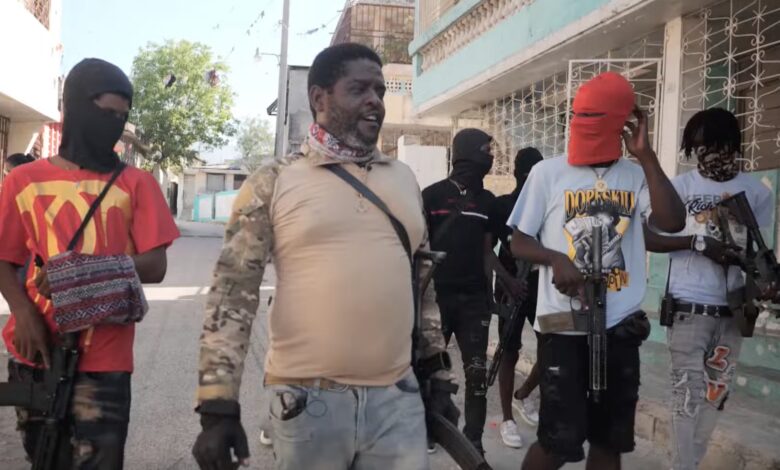
In a revealing interview, Jimmy ‘Barbecue’ Cherizier, an ex-police officer now leading an armed group in Haiti, expressed his willingness to engage in peace talks. However, he stipulated a critical condition: Haitians must be included in the dialogue process. This statement comes amid a backdrop of escalating violence and political turmoil in Haiti, highlighting the complex dynamics of power, resistance, and international intervention in the country.
The Demand for Inclusion
Cherizier, known as ‘Barbecue,’ emphasized the futility of seeking peace in Haiti without involving key local actors. His message is clear: “As long as we are not at the table, the country will never be in peace.” This sentiment resonates deeply in a nation where external decisions often overshadow local voices, as evidenced by the recent high-level meeting in Jamaica on Haiti’s crisis, which notably lacked Haitian representation.
Willingness to Negotiate
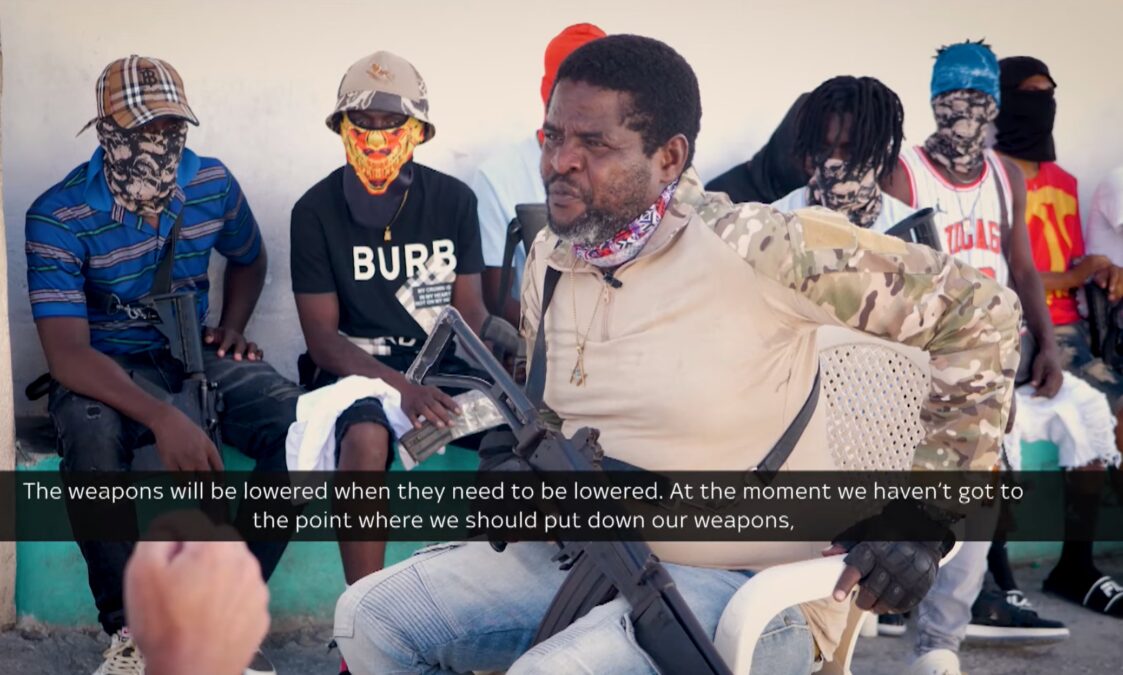
For the first time, ‘Barbecue’ has publicly declared his readiness to engage in peace negotiations. He insists, however, that these talks should not be dictated by external forces. “If the international community comes with a detailed plan where we can sit together and talk, but they do not impose on us what we should decide, I think the weapons could be lowered,” he stated. This marks a significant shift from his previously uncompromising stance and opens a potential pathway to dialogue.
The Perception of ‘Barbecue’
Internationally, ‘Barbecue’ is often viewed as a gangster. Yet, in Haiti, he embodies a Robin Hood figure, providing for the needs of his community amidst chaos. Despite the visible presence of armed personnel, his turf remains relatively calm, with civilians lining up orderly for food and necessities, reflecting a nuanced local perspective on his leadership.
Resistance to Foreign Intervention
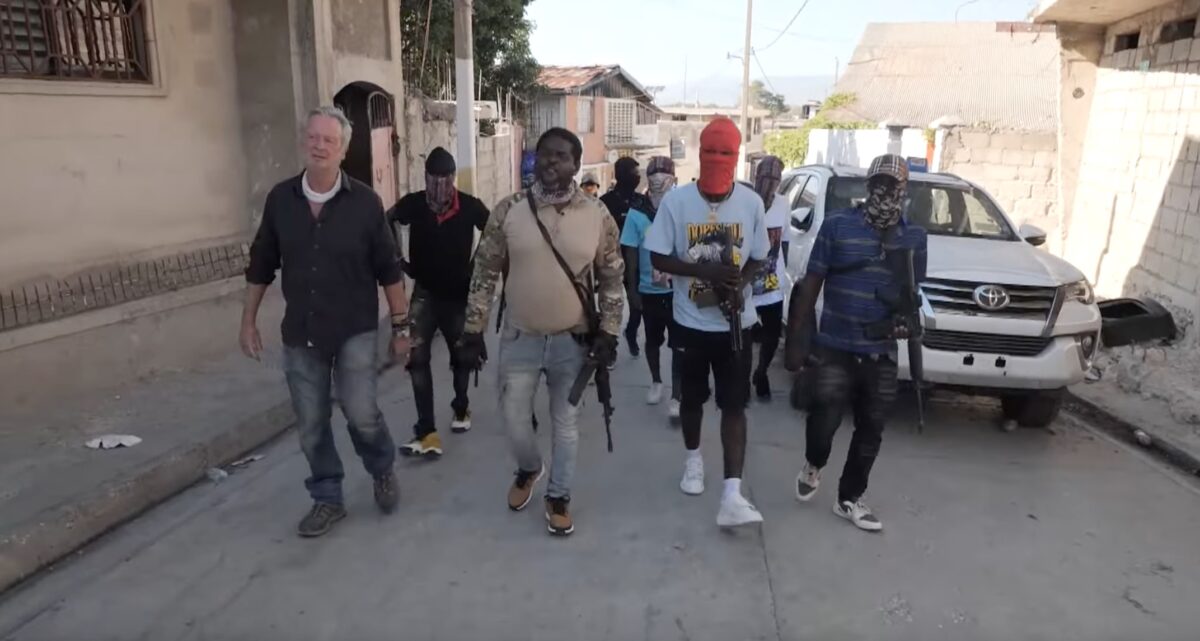
The prospect of foreign military intervention in Haiti has been met with staunch opposition from ‘Barbecue.’ In the interview with Sky News, he categorically states that any foreign troops will be seen as invaders, promising a lethal response. His remarks underscore the complexities of external involvement in Haiti’s affairs and highlight the potential for increased conflict if such interventions are perceived as undermining Haitian sovereignty.
Internal Dynamics and the Role of “Viv Ansanm” (Living Together)
Cherizier acknowledges his limited influence over ‘Viva Ansann,’ a significant group in Haiti. While he maintains contact with members, he admits his inability to curb their activities, including kidnappings and violence. This highlights the fragmented nature of power and the challenge of achieving consensus among Haiti’s various armed factions.
The Class Divide and Future Outlook
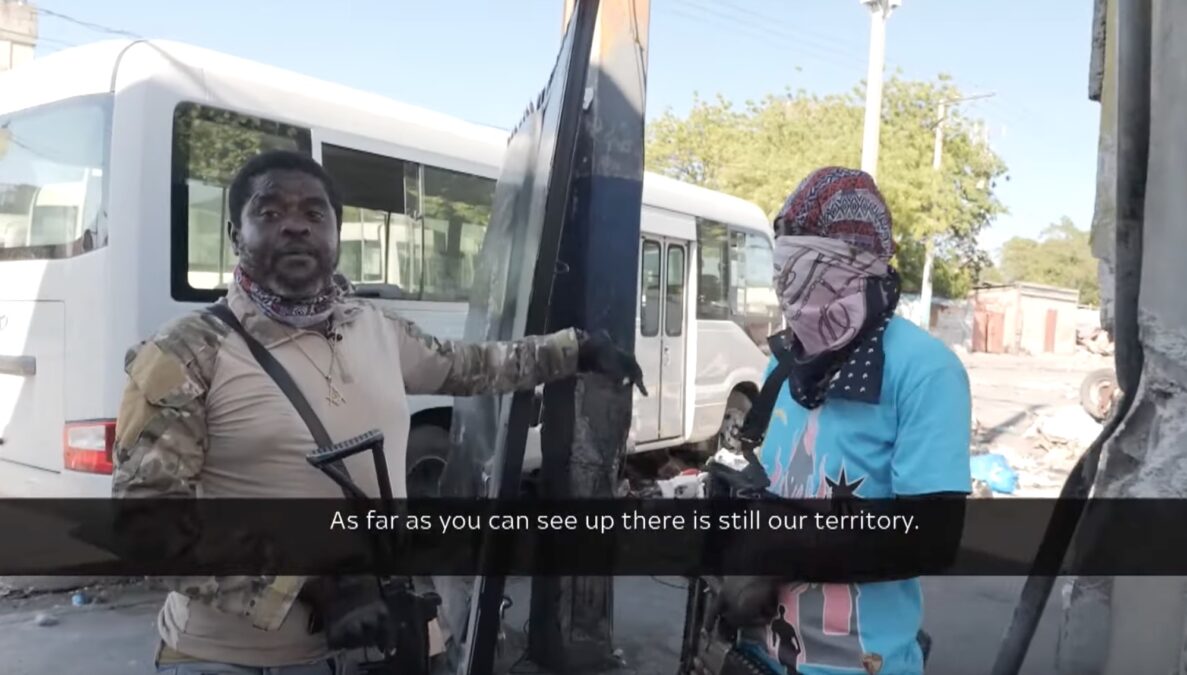
‘Barbecue’ points to the profound class divide in Haiti as a fundamental barrier to peace. He argues that the lack of dialogue between the upper and lower classes exacerbates tensions, with the wealthy often disconnected from the realities of the impoverished majority. His bleak forecast for Haiti’s future emphasizes the urgency of inclusive dialogue to bridge these divides and pave the way for sustainable peace.
Jimmy ‘Cherizier’s interview sheds more light on the intricate web of issues facing Haiti, from internal power struggles to the impact of foreign interventions. As a figure who straddles the lines between vilification and reverence, his call for a seat at the negotiating table underscores the critical need for an inclusive approach to resolving Haiti’s protracted crisis.
Whether his openness to dialogue will translate into actionable steps towards peace remains to be seen, but it undoubtedly marks a pivotal moment in the country’s tumultuous journey toward stability.
Check out the interview below:
